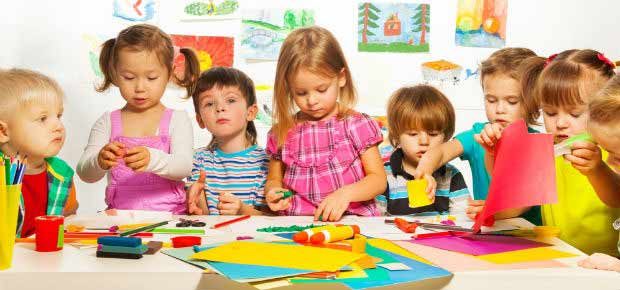In the recent times of globalization, no individual can remain isolated from others. Neither is it virtuous, nor feasible. One definitely needs to cooperate and socialize with others in order to progress in life and to develop into a normal social being. Lack of effective social skills can make a person depressed, lonely, and left out from the rest of the society. This is why it is important that development of social skills is given due importance and should be begun working on right from the time when an individual is ready to enter the process of learning, which is ideally the early childhood phase.
What generally happens is that parents often tend to misunderstand lack of social skills in children for shyness. However, if noticed carefully, there is a clear line of difference between the two. While shyness fades away with time, lack of social skills holds the child back from mingling with even the other children of his or her own age. This may appear to be a small issue superficially, but lack of social skills is actually a big problem, which grows into more complex personality issues with age, if not worked upon aptly.
What Are Social Skills?
The skills which we require for effective communication with other people are termed as social skills. It can be both verbal and non-verbal communication. Thus, a person’s appearance, speech, facial expression, body language, and gestures are also considered to be a part and parcel of the social skill set only. An individual needs social skills to ensure positive interaction with others.
Social Skills Necessary to be Groomed Right from an Early Age
For the effective development of personality, the following social skills should be inculcated among children from the very beginning:
- Greeting: Greeting someone is the first step towards a healthy social interaction. It helps a child to make friends and develop cordial relationships with others. Not only a simple “Hi” and “Hello” but also proper facial gestures should be taught from the beginning.
- Initiating Conversation: One does not simply pause after a greeting. A child should be trained well so that he or she has the skill and ability to start a conversation, continue with it, and conclude it properly.
- Observing the Listener: In order to have a conversation in a socially acceptable manner, children should learn to think from the perspective of others as well. For this, children should listen carefully what the other person is trying to convey and observe things that are going around and with them.
- Apologizing: Making mistake is common to each and every human being and it is not a big deal. What is important is acceptance of mistakes and apologizing for the same. From the very childhood, children should be taught why apologizing for their mistakes is important and that they should not ever shy away from apologizing.
- Problem-Solving: Problems and conflicts are the natural parts of a social interaction. Children should be trained to solve their problems in a mature way on their own, without hurting the sentiments of others.
How Can Parents Contribute To Development of Social Skills in Children?
Since the home is the first and foremost place where a child learns to interact and communicate, family plays the most active role in the inculcation of social skills in a child. In order to enhance the child’s social and communication skills, it is important that parents work on the following:
- Encourage the child to ask questions in order to develop the thirst for knowledge. In short, keep fuelling his or her curiosity.
- Allow the child to follow whatever seems to be interesting to him or her. By allowing the child to follow the hobbies, the parents are actually contributing in the development of social skills.
- Send regular invitation to the friends of the child to increase interaction among them. This helps them to be more social and active.
- Assign fun-based activities to children which can be enjoyable on one hand and can make them speak out their interest on the other.
K.R. Mangalam Playing an Active Role in All Round Development of Children
Besides the family, the other most important agent of development is definitely the educational institution, the school. A child begins to take the first step towards formal learning in the school itself. In the recent times, owing to the soaring competition everywhere, it has become all the more important that schools along with the parents contribute to bringing about holistic development of children so that it becomes easy for them to adapt well in their professional lives later.
We, at the K.R. Mangalam School, are very particular about ensuring that our students don’t just excel in the academic sphere but also grow equally well in all directions. In order to prepare the students to grow into highly sociable, effective individuals in future, the school takes the following steps:
- Regular counselling of the students to identify the problems the child is going through and suggestion of cure and remedies for the same.
- Due emphasis is given to co-curricular activities where children get to interact a lot with fellow participants as well as peers.
- Regular classes on the English language are conducted to develop linguistic skills and speaking capacity among the students.
- Students are encouraged to participate in debate competitions and elocutions that helps to pull out their stage fear and enable them to communicate well amongst masses.
We, at the K.R. Mangalam School, are taking all the necessary steps to ensure all round development of our students, and with the cooperation of parents, we are very sure we can together carve a bright and healthy future for our younger generation.




Leave a Reply